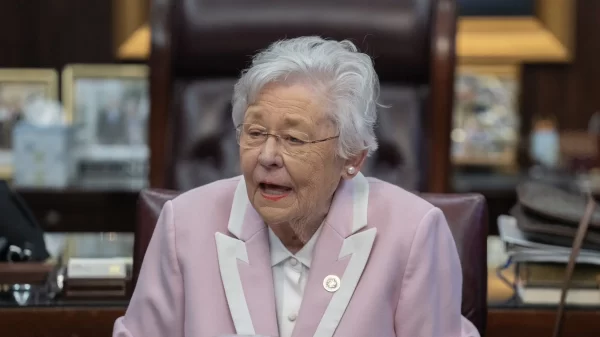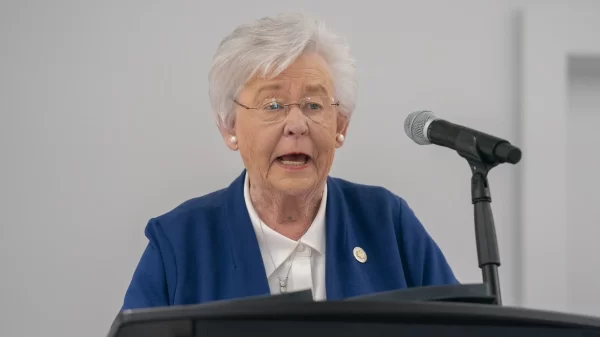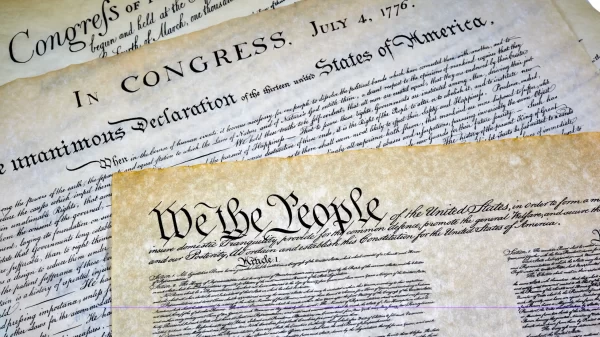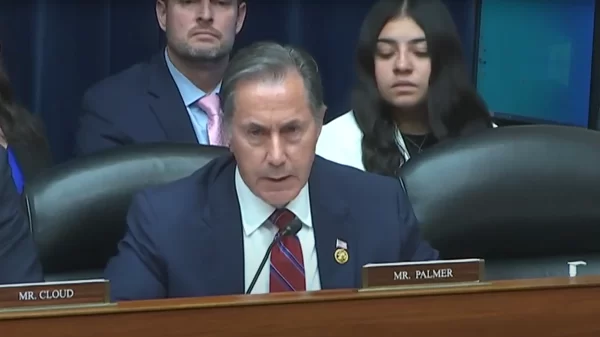Alabama Congressman Mike Rogers, R-Saks, announced Friday he was co-sponsoring the Concealed Carry Reciprocity Act, H.R. 38.
If passed, national reciprocity would allow citizens with a concealed carry permit to travel to other states and have their concealed carry privilege honored by authorities in that state, much like motorists with drivers licenses can operate their motor vehicles when they cross state lines.
“I was pleased to cosponsor H.R. 38, the Concealed Carry Reciprocity Act of 2019,” Rogers said in an email to constituents. “This common-sense legislation would allow those who meet the qualifications to carry or have in their possession a concealed handgun in another state that allows individuals to carry concealed firearms. Our Second Amendment rights shouldn’t have to stop at the state line.”
H.R. 38 is being sponsored by Rep. Richard Hudson, R-North Carolina. The Senate version is being sponsored by Sen. John Cornyn, R-Texas, in the Senate.
“Concealed carry reciprocity is already well-established across our country with the average state recognizing permits from more than 30 other states,” Hudson said. “National concealed carry reciprocity is common sense, and I’ll continue to lead the efforts to make it a reality.”
“This bill focuses on two of our country’s most fundamental constitutional protections — the Second Amendment’s right of citizens to keep and bear arms and the Tenth Amendment’s right of states to make laws best-suited for their residents,” Cornyn said. “I look forward to working with my colleagues to advance this important legislation for law-abiding gun owners nationwide.”
U.S. Sen. Richard Shelby, R-Alabama, is an original co-sponsor of the bill.
The Cornyn version of the bill protects fundamental Constitutional rights by allowing law-abiding citizens to exercise their fundamental right to self-defense while they are traveling or temporarily living away from home, allows individuals with concealed carry privileges in their home state to conceal carry in any other states that also allow concealed carry and treats state-issued concealed carry permits like drivers’ licenses, where an individual can use their home-state license to drive in another state but must abide by that other state’s speed limit or road laws.
Sponsors say the bill respects state sovereignty. It does not establish national standards for concealed carry, does not provide for a national concealed carry permit and does not allow a resident to circumvent their home state’s concealed carry permit laws.
If under current law an individual is prohibited by federal law from carrying a firearm, they will continue to be prohibited from doing so under our bill.
The bill also respects state laws concerning specific types of locations in which firearms may not be carried and types of firearms that may not be carried by the visiting individual. It protects states’ rights by not mandating the right to concealed carry in places that do not allow the practice.
The bill passed in the House of Representatives in the last Congress but got bogged down in the Senate. It will have more of a challenge passing in this Congress’s House, which is controlled by Democrats. The bill is supported by 24 state attorney generals.
Rogers represents Alabama’s 3rd Congressional District. He is presently serving in his ninth term in the House. Prior to that, he served in the Alabama Legislature.




















































